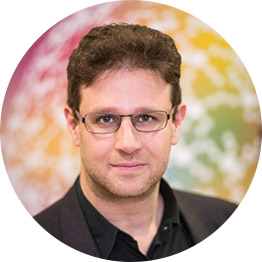
Kristóf Kovács obtained an MA in Psychology from the University of Szeged and an MPhil as well as a PhD in Psychology from the University of Cambridge, having gained a Benefactors’ Scholarship from St. John’s College, Cambridge. Subsequently, he was a Zoltan Magyary Postdoctoral Fellow at the Budapest University of Technology and Economics, and a Marie Curie Fellow at the University of Amsterdam. His main interest is individual differences in cognitive abilities; his research bridges experimental cognitive psychology, psychometrics, and statistical modeling. Currently, he is senior research fellow at Eötvös Loránd University, Hungary.

Szilvia Fodor is a psychologist, and works as an assistant professor at the Department of Counselling and School Psychology, Eötvös Loránd University, Budapest. She has courses on the psychology of teaching and learning, gifted education and positive psychology and she is also active in teacher training. Her main fields of research are positive psychological aspects of gifted education, the cognitive and non-cognitive factors of talent development and school organizational psychology. Besides teaching and research, Szilvia is active in talent assessment and counselling at several schools. She is a regular consultant of the European Talent Centre, Budapest and serves as a member of the ECHA General Commitees since 2020.

BALÁZS KLEIN
Balázs Klein graduated from Eötvös Lóránd University with a Masters degre in law and psychology, and earned a PhD in economics from the University of Debrecen. He worked for several years as a senior researcher in the Budapest and London offices of SHL Manager Selection and Aptitude Testing company. He currently develops and distributes computerised online aptitude tests and talent identification tools within his own company (Testar Ltd.). Tens of thousands of the novel online adaptive ability tests he developed are administered worldwide each year with adults and children, both in the educational and in the competitive sphere.

Hanif Akhtar is a PhD student at Eötvös Loránd University (ELTE), Budapest. He is broadly interested in psychometrics, test-taking behavior, and individual differences in intelligence and personality. He is working on the measurement of cognitive abilities. In his PhD thesis, he develops a new computerized adaptive test (CAT) to measure fluid reasoning. Moreover, he investigates the psychometric and psychological impacts of CAT. He completed his Bachelor’s and Master’s studies at Universitas Gadjah Mada (UGM), Indonesia, where he developed a brief measure of personality traits for Indonesians. He is currently a distance instructor for undergraduate psychology students at the University of Muhammadiyah Malang, Indonesia.

Bence Gergely is a PhD student at Eötvös Lóránd University (ELTE), Budapest. He is currently working on the measurement problems of tracking individual cognitive development in Adaptive Learning Systems. The main focus of his dissertation is a rating system called Urnings, and possible extensions of this algorithm to create an optimal environment for students in technology-enhanced learning scenarios. This multidisciplinary research is a collaboration with ELTE, the Károli University of the Reformed Church and Tilburg University. He obtained a Bachelor’s degree at the Károli University of the Reformed Church and a Research Master’s degree at the University of Amsterdam, focusing on Psychological methods, statistics and computational sciences.
Alumni
Bálint Ugrin (MA, 2023): Age effects on cognitive abilities
Bori Nagy (MA, 2023): Twin testosterone transfer and spatial ability
Valér Kaszás (MSc, 2021): Causal inference with machine learning methods to uncover covariance cased network models for psychometrics
Meriyert Yakipbekova (MSc, 2020): The measurement of individual differences in executive functions
Yaniv Shahar (MA, 2018): The effect of IQ on the perception of others’ IQ

